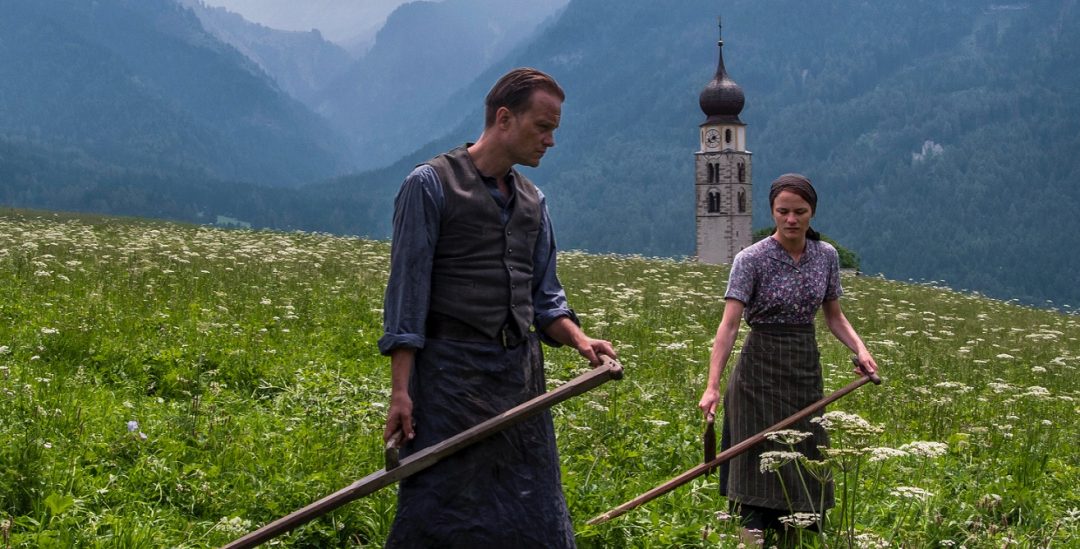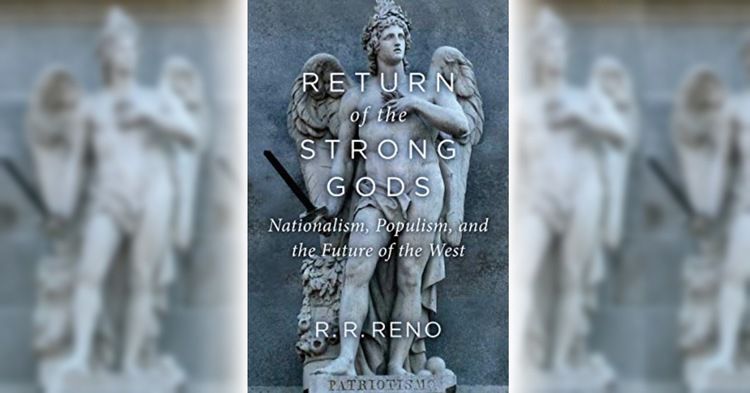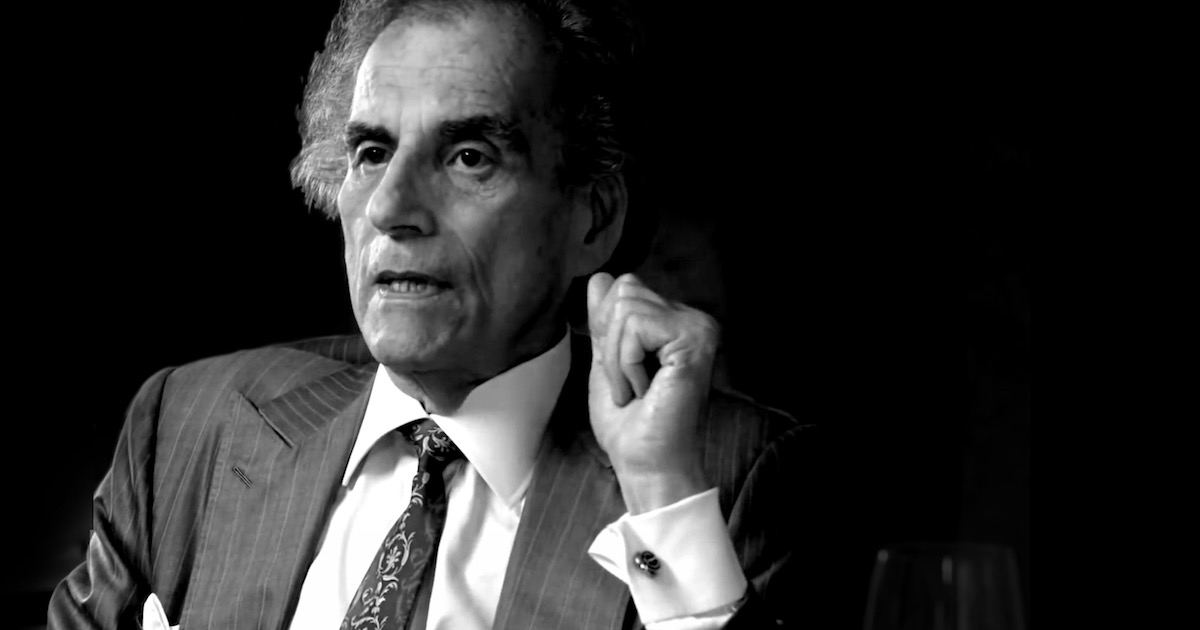
The new Terrence Malick movie, A Hidden Life, is patient, heartbreaking evidence of our need of saints and martyrs. It is also the highest example of Christian art in our times, offering a remarkable, rare critique of the Nazis from the right and, therewith, a proposal for right-wing politics without atheism.
"A Hidden Life...is patient, heartbreaking evidence of our need of saints and martyrs. It is also the highest example of Christian art in our times..."
We are used to stories of ordinary men doing extraordinary things in extraordinary situations: This is the most democratic story we can imagine, befitting the most democratic people in history. We are flattered by the possibility of becoming heroes against our own best intentions, just as we are tempted to ignore the real differences between heroes and the rest of us, to reduce these to a matter of circumstances… A Hidden Life is about something more than the ordinary—life in the little village of St. Radegund in Alpine Austria is perfect, not ordinary. It is also about someone we wouldn’t really want to be, a man who chose martyrdom, perhaps the rarest choice imaginable in our times of freedom of choice. Whereas our movies are usually public self-flattery, Malick tells a provocative story—provocative both to a liberalism that claims to be able to sympathize in a sophisticated way with any suffering, but at the price of explaining it away as a misunderstanding, or perhaps as a “fault of a social and economic system in need of reform,” and to a democracy that places blame for all suffering on someone other than the people, even on the martyr himself.
Our martyr is Franz Jaegerstaetter, who, we learn, was raised by his mother after his father’s death in the Great War. He’s a good man, because he lives in a good community. Given Malick’s philosophical education focused on Martin Heidegger, the peasant way of life in St. Radegund reminds one of the notion of dwelling, which was admired even by the late Sir Roger Scruton, who thought nothing of Heidegger’s philosophy otherwise. Dwelling is living without strife, without political ambition, and therefore without quarrels. It is being at home in the world—the land and agriculture, family, worship, the skies above. Suffering and mortality are shared, and therefore accepted. Pleasures are accepted as gifts, often bestowed by community, almost always by family, and they are too simple to overexcite the imagination to desire luxuries and decadence.
This, then, is what you could call the conservative ideal, the basis of right-wing criticism of modernity, which modernizes everything incessantly, driving people into restlessness and every misery known to man. It’s Eden, if you think of Malick’s Christian faith, or the natural city Socrates describes to arouse the indignation of the passionate Glaucon in Plato’s Republic. But the village is fatefully named for a Germanic saint whose family was slaughtered in the dynastic fights between the barbarians who took over the Roman empire, and Christianity with it. Perhaps the twentieth century was another such collapse into barbarism.
This way of life is now unpopular, and the type of man it breeds is uninteresting, because he is a man without neuroses and terrors. Franz would be boring in boring times, but proves, in trying times, more than most sophisticated people did, equal to the fundamental theologico-political drama of our epoch. He is not just boring, but a man who believes in God’s Providence. He’s also a real person rather than a fictional character. We think we know people by their deeds, and prudently decline to believe mere speeches, but Franz becomes harder to understand the more he pursues his martyr’s cross and the more we believe in the inevitable fate that awaits him, since we wouldn’t act as he did.
Until World War II, Franz lived with the rewards of his goodness: the love of his beautiful wife Franziska and three daughters, the respect of his community, the consolations of his church. Then came the war. Even into the little village of St. Radegund, the Nazis brought hatred and a seemingly unbreakable strength that encouraged dark passions, silenced all prudence and moderation, and perverted piety. Men became ugly long before defeat and this revealed the need for a martyr, someone who wouldn’t be similarly corrupted by events.
Franz was called to arms early, in 1940, but was sent home from basic training when France capitulated. He was then only called to serve in 1943. In this interim, he formed his opinions of the war. He came to believe Hitler was evil and no Christian man could swear an oath to him without sinning. This act of piety proved to be an unpopular opinion, and made his life in the village ever harder long before it led to his arrest, imprisonment, torture, and murder in Berlin in August 1943. In a way, Franz’s fate proves Hitler’s point: Whoever opposes him dies. In another way, it proves Christ’s point: Death might be necessary to save morality. A martyr, in not saving himself, can save everyone else.
Everyone else, however, is unlikely to be grateful, which makes the matter very difficult to judge politically. Everyone looks ugly, cowardly, compared to Franz. Everyone wants him to be reasonable, fears the consequences of his disobedience, especially for themselves, and seeks to take out their feelings of shame on him. Here we see Rene Girard’s scapegoat, the necessary and innocent victim of a community’s fears and wickedness, the impossible standard of moral judgment. Franz looks for consolation everywhere and finds none but in his wife’s uncomprehending love.
By his unwillingness to swear a false oath to Hitler, Franz demonstrates the character today counterfeited by everyone who loudly denounces the Nazis: they would all have been cowards and hid, had they not collaborated or perhaps joined in the orgy of violence. In the liberal mythology of anti-fascism, everyone except the men who actually fought the Nazis is an anti-fascist. Those fighting men were themselves fascist, by being racist and sexist. This is the legitimating myth of the European Union, for example: no more war once universal liberalism replaces the divisive, warlike ideals of the past. Hence everyone who disagrees with the E.U. is called fascist sooner or later. The reality is, Hitler was defeated by the political right—by regimes and armies dedicated to God, to honor, to country, to conservative and Christian principles, both in Europe and America.
In reminding us of the vanished world of the right, of conservatism as it existed before the World Wars, Malick reminds us, of course, also of its failures: the failure, above all, to live up to the demands of the Christian faith. This is important not only in order to overcome an understandable nostalgia for that simpler life, but in order to comprehend what we need today from it: the strength of character that relies on faith, the invisible but real requirement of continuity of civilization, through catastrophe, in the generations.
Malick’s movie is almost three hours long, and therefore able to present plausibly the village’s alien way of life, as well as its deepening conflicts between fear of death and faith in eternity, and the loving family that will be destroyed and then miraculously preserved—Franz dies, but his wife and daughters live with his memory. Malick met with two surviving daughters and eventually showed them the movie of their father’s martyrdom. They are said to have approved, though they were too young to have understood events at the time. The movie also uses the basic training and jail correspondence of Franz and Franziska to reveal the only expressions of faith and love of a man too manly to have publicly talked about himself. In all, we get a remarkable portrait, rounded off by Malick’s scenes of conversation of the man about to choose martyrdom with a priest, a painter, the local Nazifying mayor, and a fearful bishop.
We all say at some level we want to be moral, and most of us prove it by living normal lives, unworried about committing crimes against others or having them committed against ourselves. But we need also to understand what makes up the foundation of this everyday experience, because it is present, unbeknownst to us, in our every moment of indignation at injustice and longing for perfection. Malick shows an astonishing grasp of this problem, and leads us from banal examples of freedom to the ultimate moral assertion of freedom, knowing very well that we are likely to find the former too boring or banal to investigate, and the latter too foreign or fearful to contemplate. It takes mastery to achieve such a coherent structure of intellectual investigation in the element of the beautiful, of storytelling and image-making, and it is all the more persuasive for showing us real people instead of giving us, say, an abstract treatise.
The double structure of the movie, then, is one motion from life without strife to the greatest strife imaginable—spiritual warfare between Christ and anti-Christ—and another motion from everyday experience to the rare experience, when morality comes to a full crisis. This we can say is both a political lesson, an investigation of the problem of prudence, and evidence of divine providence, since the confrontation with evil leads to wisdom about human nature. It is therefore no accident that Malick chose this particular story to tell, a story which itself might seem a matter of accident if we ignore the moral seriousness of the characters. Malick has succeeded in restoring the possibility of right-wing thought in cinema. This is great in itself and a sign of greatness to come, a cinema of national memory to replace the sterile individualism of latter-day liberalism.

